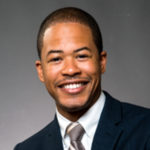 My family is quite conservative — I feel like that is a good starting place. I remember when I finally confessed my progressive theological views to them. I was quite afraid, but the faith I had in my beliefs overtook the fear. That doesn’t mean the conversation was not met with tension, especially when I mentioned I believe in a table that welcomes and loves all.
My family is quite conservative — I feel like that is a good starting place. I remember when I finally confessed my progressive theological views to them. I was quite afraid, but the faith I had in my beliefs overtook the fear. That doesn’t mean the conversation was not met with tension, especially when I mentioned I believe in a table that welcomes and loves all.
“Not my Jesus!” my family vehemently responded. While they were angry about the fact that we no longer shared the same theology, they also were inquisitive.
For years, my mother has been asking questions, and for years I have been delighted to engage in a discussion with her. Knowing I may not fully change her mind, I can at least help her become aware of certain theological aspects.
After the horrific acts in Charlottesville, I have had many friends and colleagues reach out to me asking, “What can I do? How can I help you?”
Lately, my answer has been, “Have a conversation.”
We often forget that race is a sociological construct. Throughout time one group of people became empowered and was told they were more desired. From this false narrative and hubris, the concept of racism was birthed. People of color did not create racism, yet we are often looked to for the solution to end it. It should not be our responsibility to end the power and privilege white people have inherited generation after generation. And even if you think it is our responsibility, the fact of the matter is, we cannot end it because more times than not, our voices are muted as soon as people see the color of our skin.
What I have learned about my moderate/progressive white friends and clergy, especially in the South, is that they are not afraid to approach me — or any person of color — with questions. However, they are afraid of approaching their own families and close friends about their own awareness and theology of inclusion.
In the conversations I’ve had with many of my white friends, I repeatedly hear of the numerous people in their inner circles who disagree with their views on race and the treatment of people of color in America. There is the friend who is more comfortable with hundreds of white men carrying rifles in public than in walking in the “wrong part of town” or next to a black man on the street. The person who believes affirmative action is holding back white children from getting the education they deserve. Or someone who complains about paying taxes so “those blacks can obtain welfare and sit at home.” These misconceptions — and many more unsaid — are the reasons some in your inner circle refuse to have a respectable conversation with a person of color.
Therefore, your conversations with your inner circles are important and required.
If you truly believe white privilege is an actual construct, if you truly believe there is an equal place at the table for all, if you truly believe in loving your neighbor and the God who is in each of them, then have an important conversation. Today. Allow your faith to overtake your fear. I can assure you there will probably be anger, but we can only hope a few will become inquisitive and aware — two things that will take time and patience on your behalf.
Related opinion: Reflections on Charlottesville for white Christians / Kristopher Norris
Psalm 109: A reading after Charlottesville / Greg Jarrell
The white singularity: The racial divide in American evangelicalism / Alan Bean
Related news: Churches in Charlottesville, Va., brace for alt-right protesters
